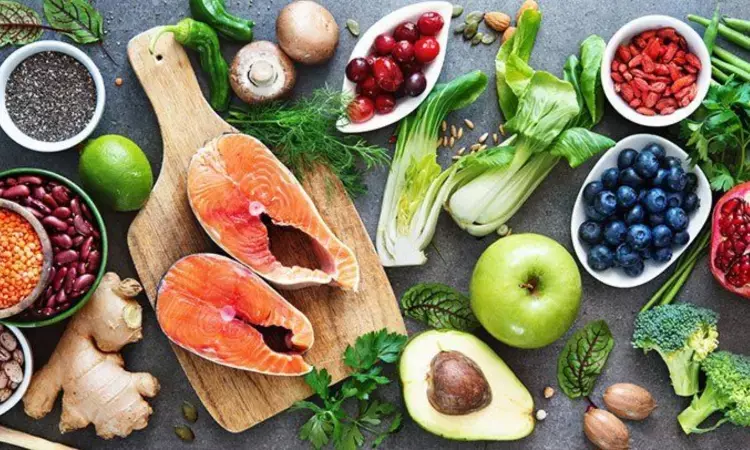- Home
- Medical news & Guidelines
- Anesthesiology
- Cardiology and CTVS
- Critical Care
- Dentistry
- Dermatology
- Diabetes and Endocrinology
- ENT
- Gastroenterology
- Medicine
- Nephrology
- Neurology
- Obstretics-Gynaecology
- Oncology
- Ophthalmology
- Orthopaedics
- Pediatrics-Neonatology
- Psychiatry
- Pulmonology
- Radiology
- Surgery
- Urology
- Laboratory Medicine
- Diet
- Nursing
- Paramedical
- Physiotherapy
- Health news
- Fact Check
- Bone Health Fact Check
- Brain Health Fact Check
- Cancer Related Fact Check
- Child Care Fact Check
- Dental and oral health fact check
- Diabetes and metabolic health fact check
- Diet and Nutrition Fact Check
- Eye and ENT Care Fact Check
- Fitness fact check
- Gut health fact check
- Heart health fact check
- Kidney health fact check
- Medical education fact check
- Men's health fact check
- Respiratory fact check
- Skin and hair care fact check
- Vaccine and Immunization fact check
- Women's health fact check
- AYUSH
- State News
- Andaman and Nicobar Islands
- Andhra Pradesh
- Arunachal Pradesh
- Assam
- Bihar
- Chandigarh
- Chattisgarh
- Dadra and Nagar Haveli
- Daman and Diu
- Delhi
- Goa
- Gujarat
- Haryana
- Himachal Pradesh
- Jammu & Kashmir
- Jharkhand
- Karnataka
- Kerala
- Ladakh
- Lakshadweep
- Madhya Pradesh
- Maharashtra
- Manipur
- Meghalaya
- Mizoram
- Nagaland
- Odisha
- Puducherry
- Punjab
- Rajasthan
- Sikkim
- Tamil Nadu
- Telangana
- Tripura
- Uttar Pradesh
- Uttrakhand
- West Bengal
- Medical Education
- Industry
Indo-Mediterranean diet bests DASH diet for lowering BP, CVD and all cause mortality

This study published in the Nutrients Journal highlights the role of nutritious diet (DASH, Indo-Western and Japanese) against Western-type that can lead to increased levels of oxidative stress and inflammation, which contributes to hypertension and other cardiovascular diseases.
The study by Ram Singh and team notes that the dietary approaches to stop hypertension (DASH) diet can be effective in preventing hypertension, but there may also be benefits to other diets such as those of the Indo-Mediterranean and Japanese cultures.
The findings of this study were:
The DASH diet, which emphasizes fruits, vegetables, whole grains, and low-fat dairy products, has been found to be effective in reducing blood pressure in several randomized controlled trials. The DASH diet also has been found to improve other cardiovascular risk factors such as cholesterol levels, insulin sensitivity, and inflammation.
Indo-Mediterranean diets, which are characterized by high intake of pulses, porridge, spices, millets, fruits, vegetables, and low in meat, saturated fat and processed food, have also shown promising results in reducing blood pressure and improving other cardiovascular risk factors. Some studies have found that the inclusion of berries, guava, pumpkin seeds, carrots, soya beans, and spices, may also have blood pressure-lowering effects.
Japanese diet, which is rich in fish, vegetables, and soy products have been found to have a lower rate of hypertension and CVD compare to Western diet. This may be due to their consumption of fish-derived omega-3 fatty acids, fish peptides, and taurine, which have been found to have blood pressure-lowering effects.
Overall, the results suggest that a diet rich in fruits, vegetables, whole grains, lean protein, low in saturated and trans fat, and moderate in sodium can be effective in preventing hypertension and improving other cardiovascular risk factors.
Larger studies and controlled trials are needed to confirm the effectiveness of these diets in preventing hypertension and the potential role of specific nutrients such as omega-3 fatty acids, fish peptide, taurine, vitamin D, vitamin C, potassium, magnesium, flavonoids, nitrate and l-arginine.
Source:
Singh, R. B., Nabavizadeh, F., Fedacko, J., Pella, D., Vanova, N., Jakabcin, P., Fatima, G., Horuichi, R., Takahashi, T., Mojto, V., Juneja, L., Watanabe, S., & Jakabcinova, A. (2022). Dietary Approaches to Stop Hypertension via Indo-Mediterranean Foods, May Be Superior to DASH Diet Intervention. In Nutrients (Vol. 15, Issue 1, p. 46). MDPI AG. https://doi.org/10.3390/nu15010046
Neuroscience Masters graduate
Jacinthlyn Sylvia, a Neuroscience Master's graduate from Chennai has worked extensively in deciphering the neurobiology of cognition and motor control in aging. She also has spread-out exposure to Neurosurgery from her Bachelor’s. She is currently involved in active Neuro-Oncology research. She is an upcoming neuroscientist with a fiery passion for writing. Her news cover at Medical Dialogues feature recent discoveries and updates from the healthcare and biomedical research fields. She can be reached at editorial@medicaldialogues.in
Dr Kamal Kant Kohli-MBBS, DTCD- a chest specialist with more than 30 years of practice and a flair for writing clinical articles, Dr Kamal Kant Kohli joined Medical Dialogues as a Chief Editor of Medical News. Besides writing articles, as an editor, he proofreads and verifies all the medical content published on Medical Dialogues including those coming from journals, studies,medical conferences,guidelines etc. Email: drkohli@medicaldialogues.in. Contact no. 011-43720751


